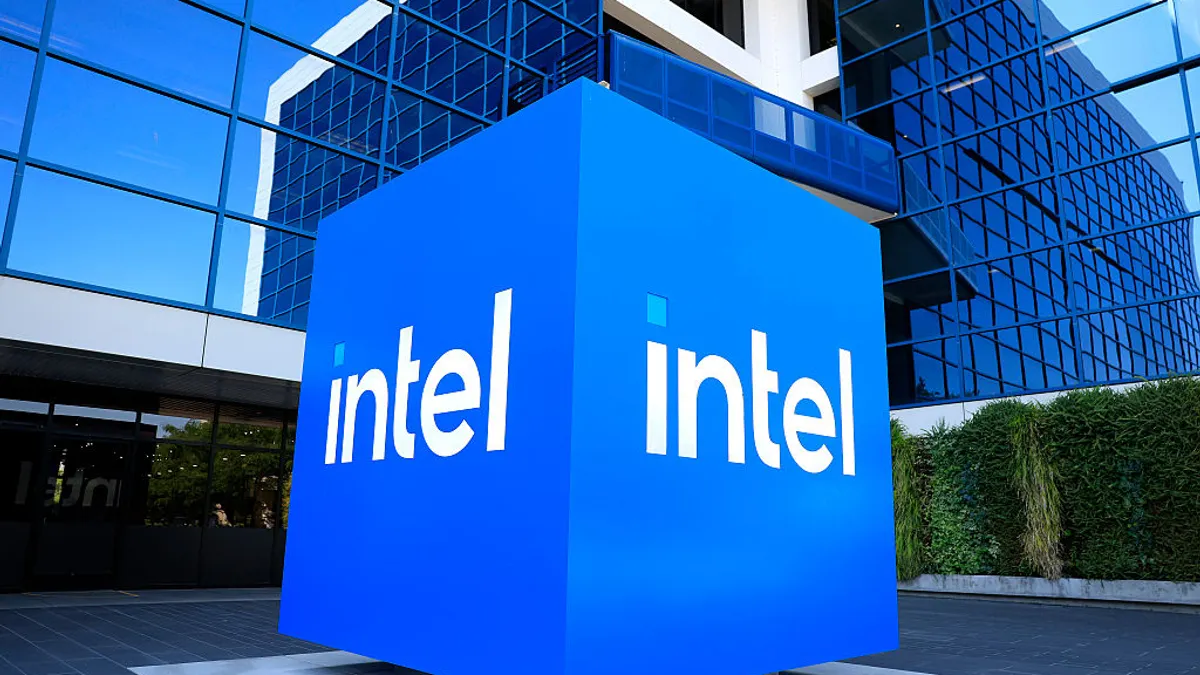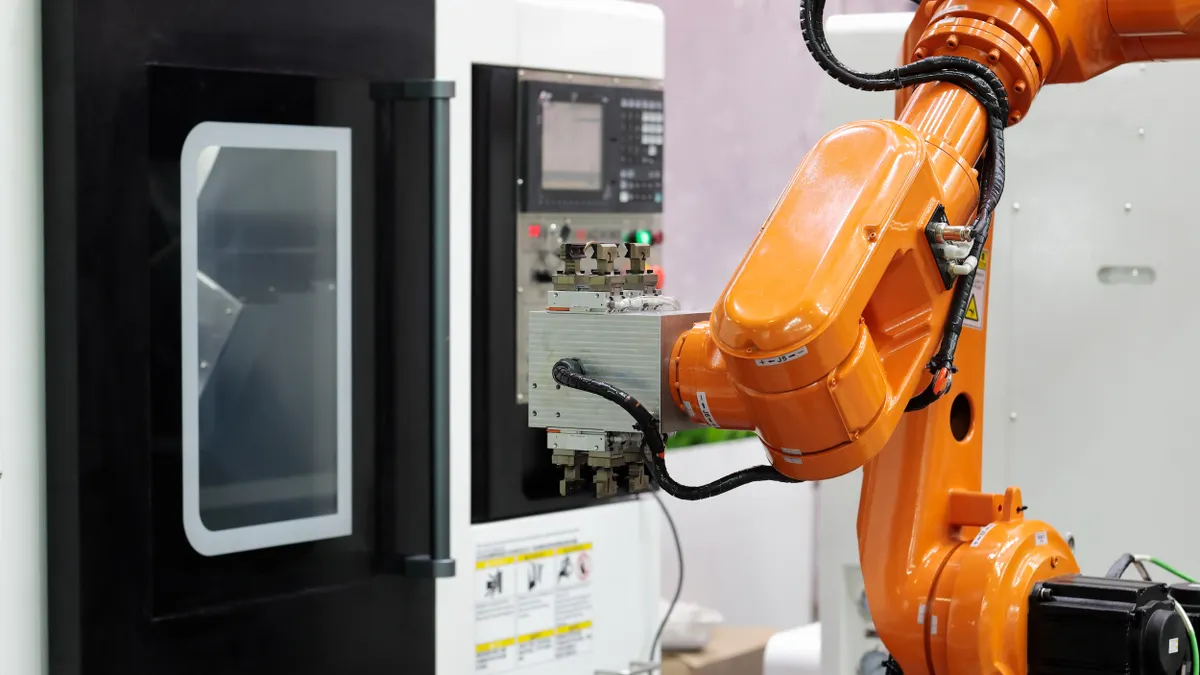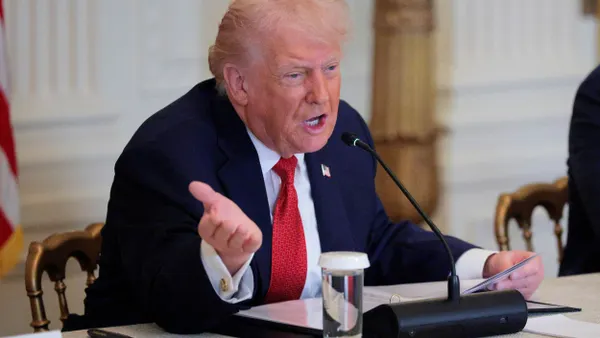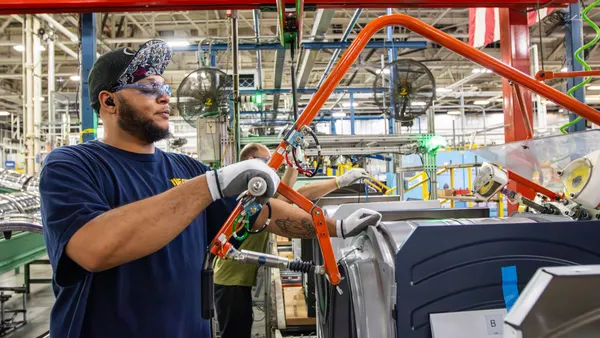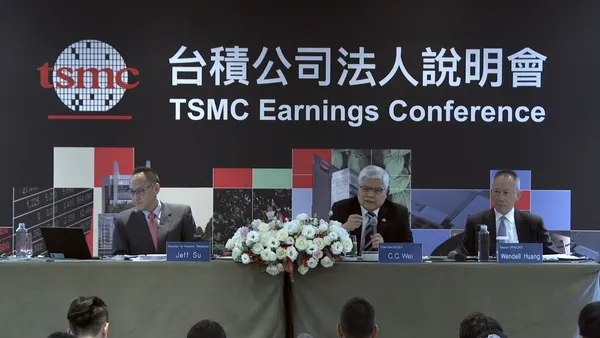The U.S. government has agreed to purchase an $8.9 billion ownership stake in Intel Corp. to support the semiconductor company’s manufacturing and expansion plans.
The equity stake will be funded with the remaining $5.7 billion in unpaid grants that were previously awarded to Intel under the U.S. CHIPS and Science Act, as well as $3.2 billion in funding awarded through the Secure Enclave program, the Santa Clara, California-based company said Friday afternoon.
The government has agreed to buy 433.3 million shares of Intel common stock at a discounted price of $20.47 per share, according to an 8-K investor filing. This would give it a 9.9% stake in the company. The closing date is scheduled for Aug. 26 or soon after.
President Donald Trump took credit for the deal, posting on his Truth Social platform on Friday that he helped negotiate the terms with Intel CEO Lip-Bu Tan. In total, the government has committed $11.1 billion to Intel in recent years, accounting for the equity stake and the $2.2 billion in CHIPS grants already received.
“This is a great deal for America and, also, a great Deal for INTEL,” Trump wrote.
Last year, Intel pledged to invest more than $100 billion in the United States over the next five years to expand chipmaking capacity and emerging technologies. Under the Biden administration, the Department of Commerce earmarked $8.5 billion as part of the commitment to fund Intel’s projects in Arizona, New Mexico, Ohio and Oregon.
Unconfirmed reports of a pending government stake in Intel were circulating last week as Softbank agreed to invest $2 billion in the company to support advanced technology. To address the rumors, Commerce Secretary Howard Lutnick appeared on CNBC’s Squawk on the Street on Aug. 19, saying the idea is to “turn the money that Biden was going to just give away and turn that into equity for the American people.”
The government will have passive ownership of Intel with its equity stake, with no board representation or governance rights, according to the deal. It will, however, be able to vote with the company’s board of directors on matters requiring shareholder approval, with limited exceptions.
“We are grateful for the confidence the President and the Administration have placed in Intel, and we look forward to working to advance U.S. technology and manufacturing leadership,” Tan said in prepared remarks.
Intel is undergoing a massive transformation under Tan’s leadership, making deep cuts across its U.S. campuses this summer with the goal of employing 75,000 core workers by the end of 2025. That is a roughly 25% reduction from December’s headcount.
Last month, the company also disclosed in an investor filing that it may pause or discontinue development of its next-generation 14a nodes and be more dependent on third-party foundries like TSMC if it cannot find a “significant external foundry customer.”
Intel’s recent equity deals could mitigate this outcome and solidify the company as a key player in the domestic semiconductor manufacturing industry. Intel’s customers Microsoft, Dell, HP and Amazon Web Services supported the government’s new deal, saying they look forward to bringing a new generation of products that are made in America to market.
As part of the equity deal, the government will also receive a five-year warrant if Intel ceases to own at least 51% of its foundry business, according to the investor filing. The warrant is valued at $20 per share for an additional 5% of Intel’s common shares.
PJT Partners acted as Intel’s financial advisor for the deal.


